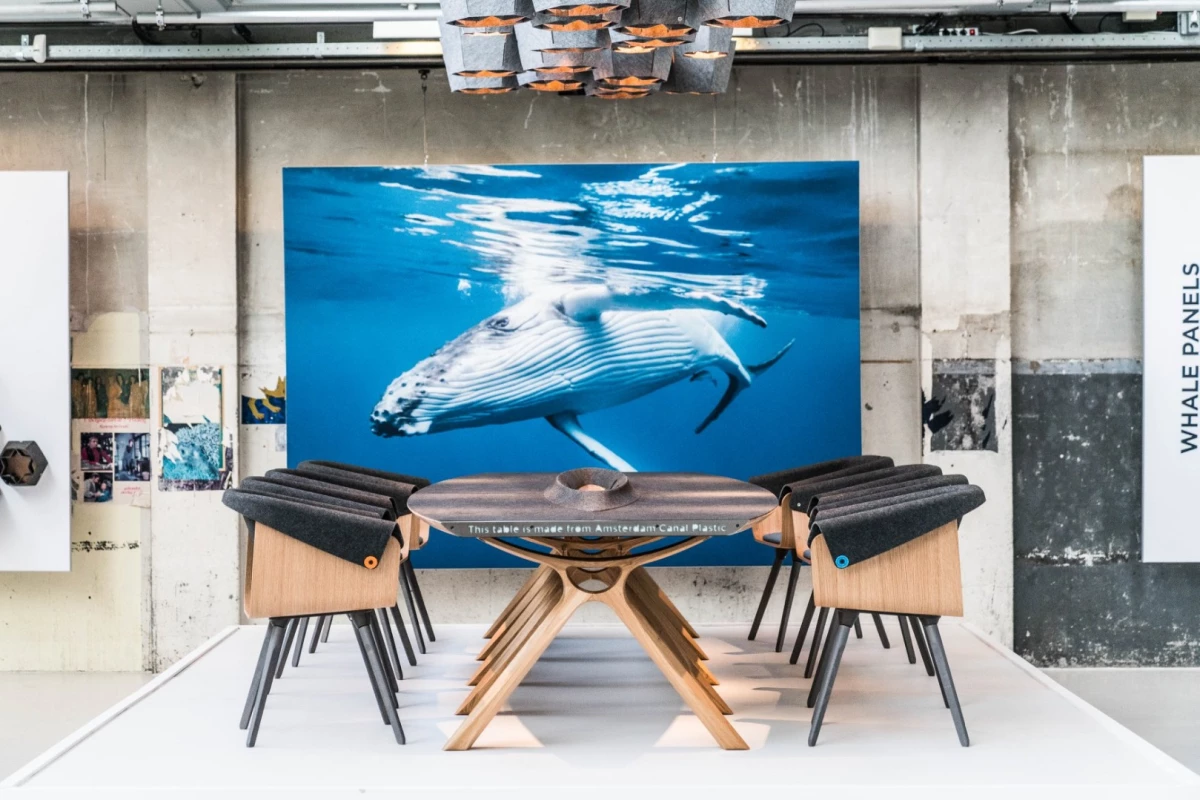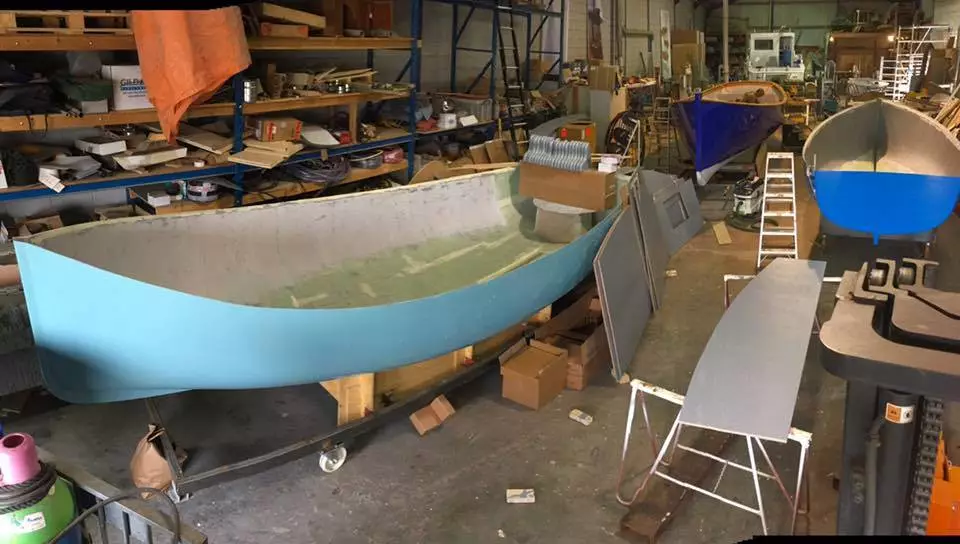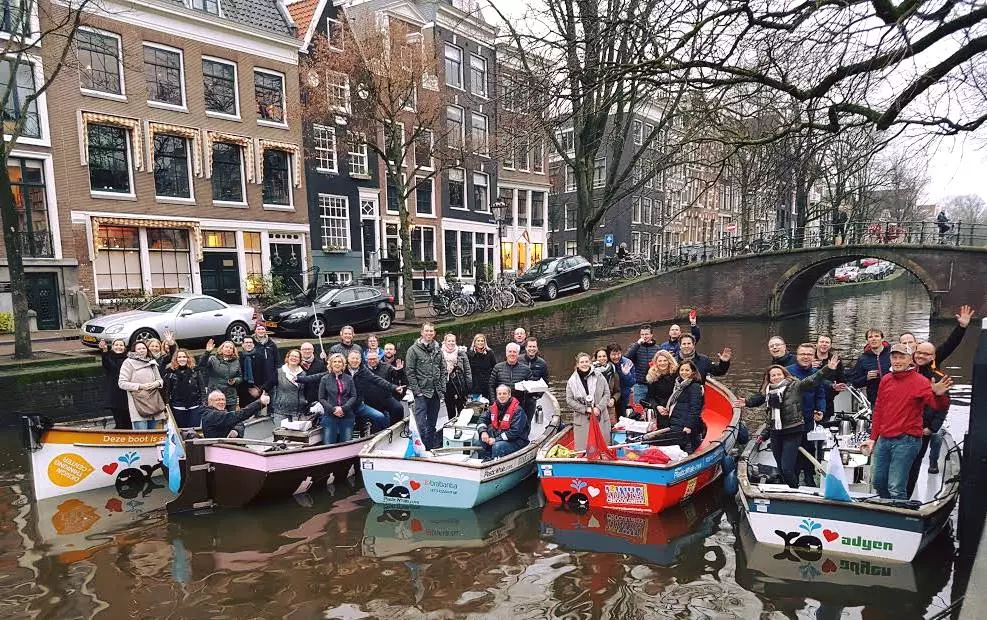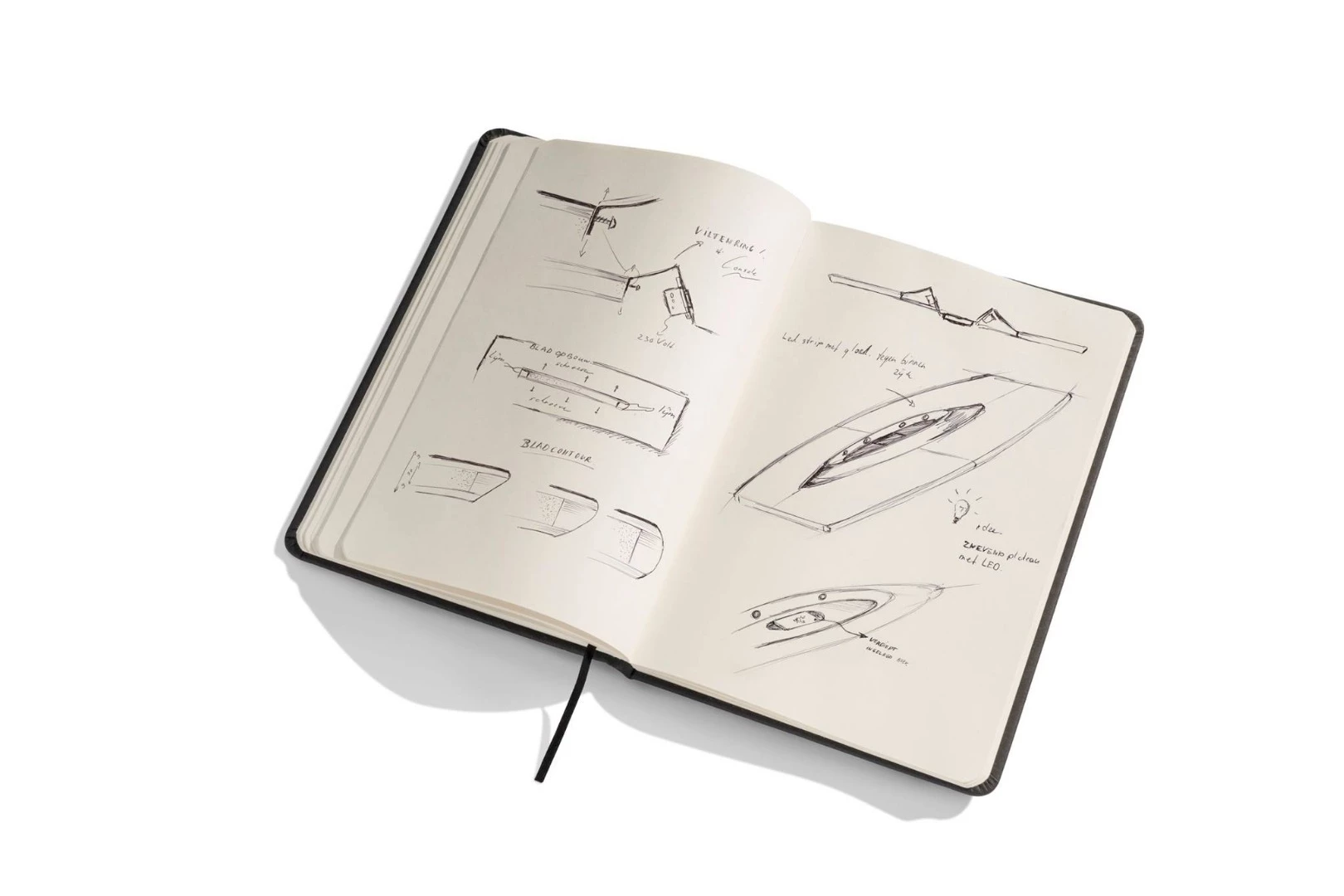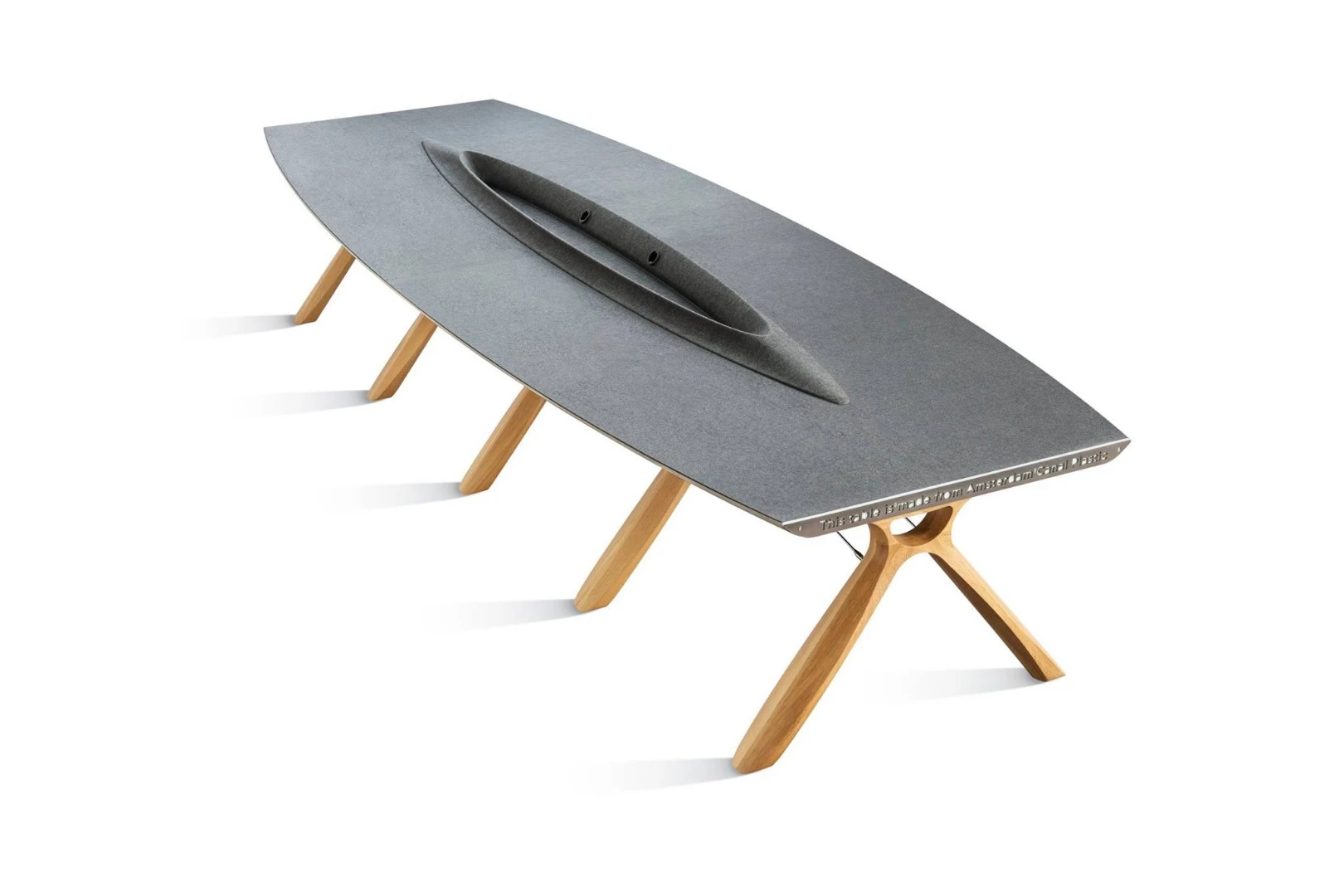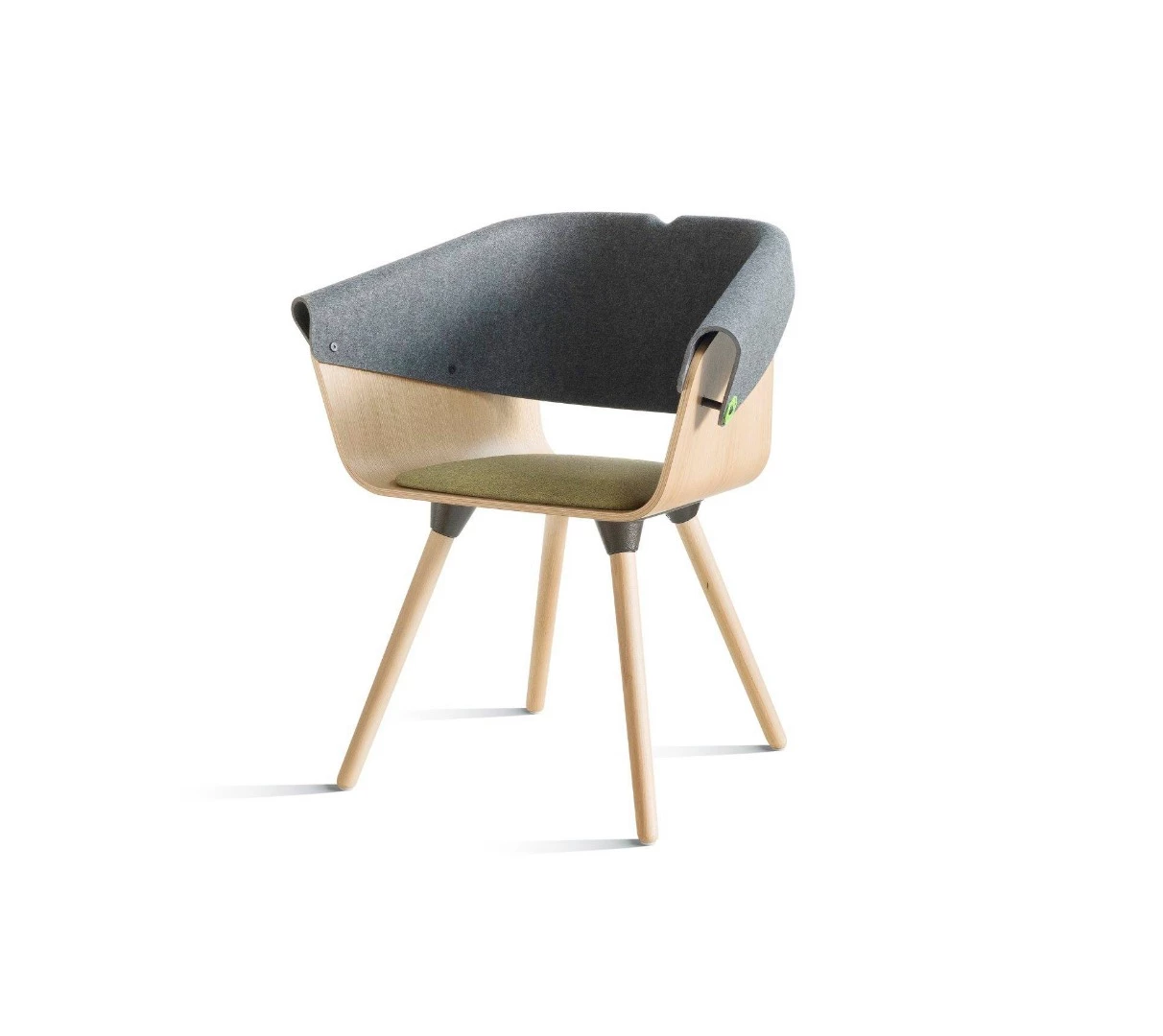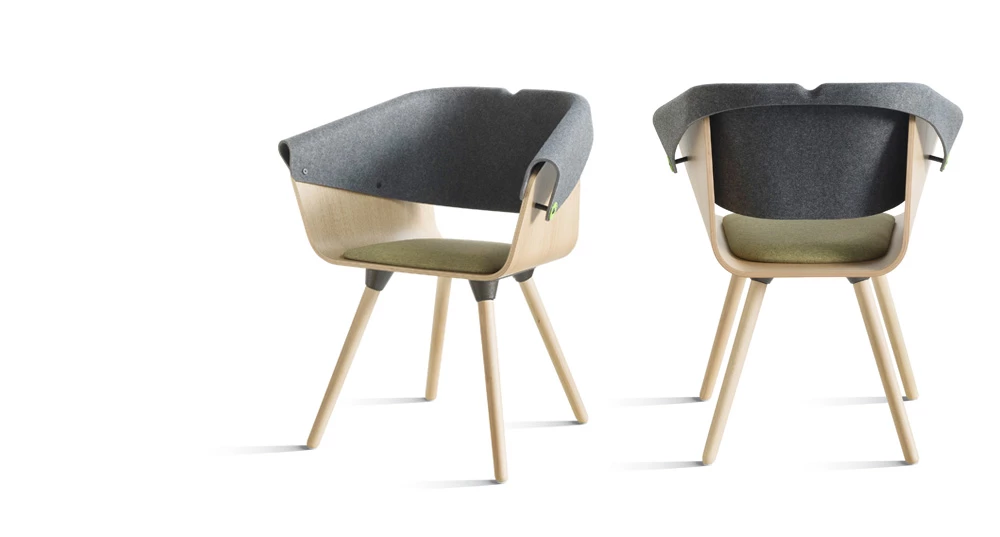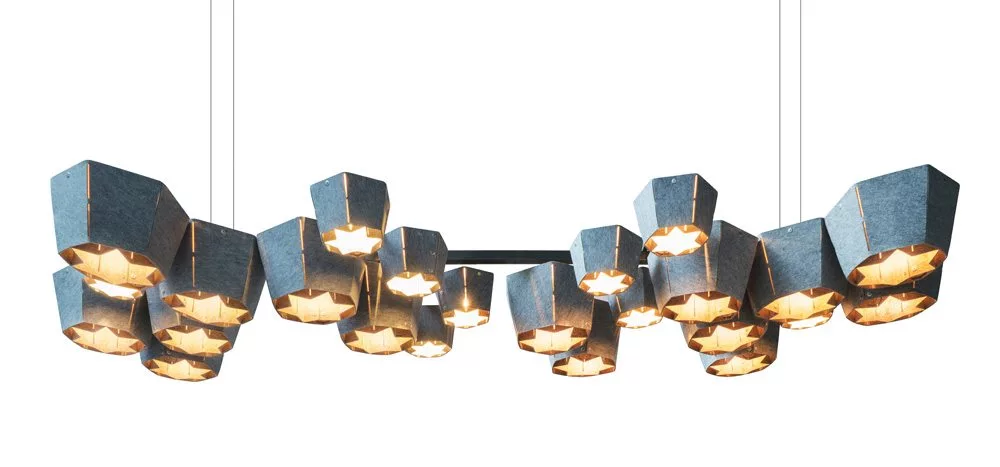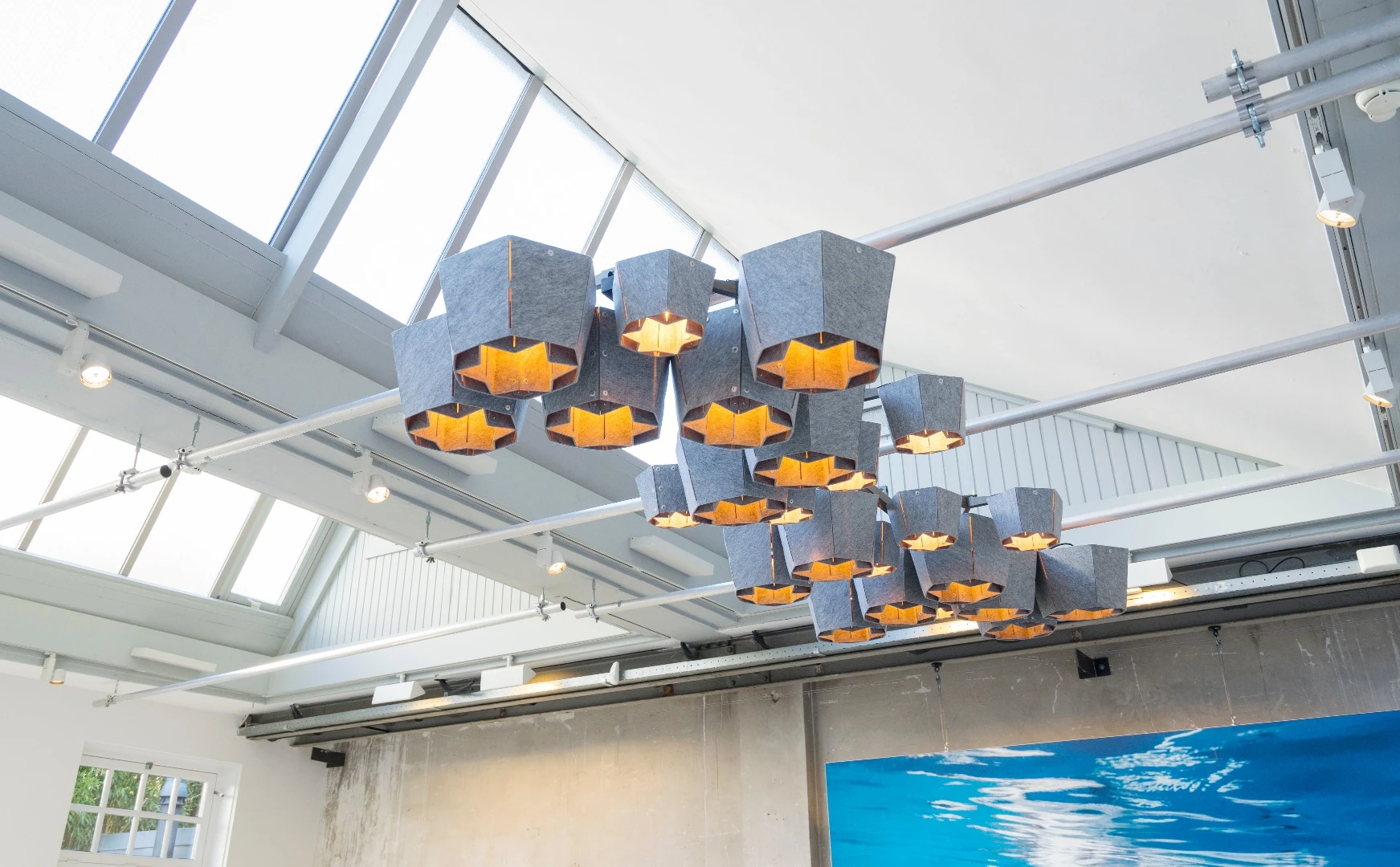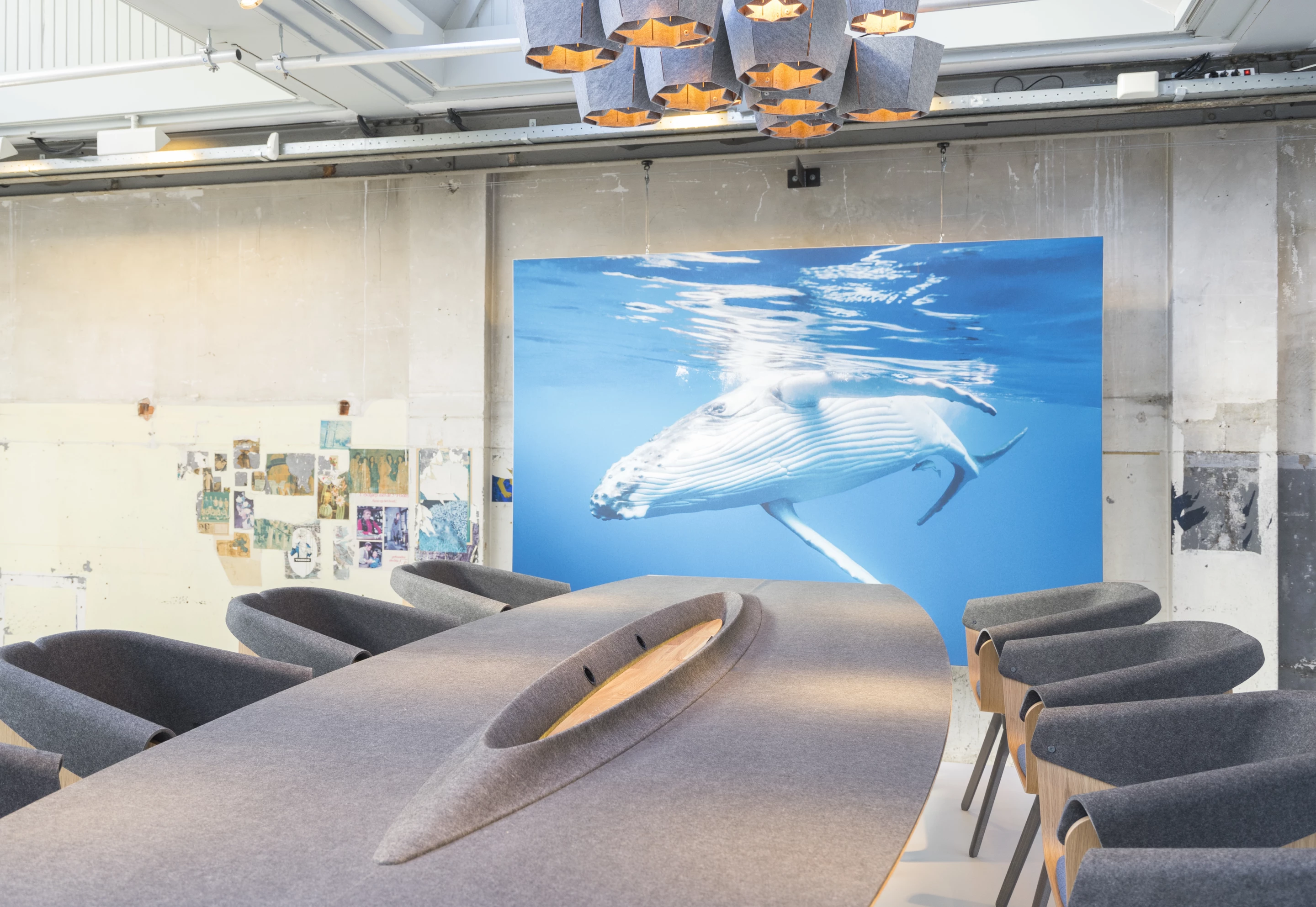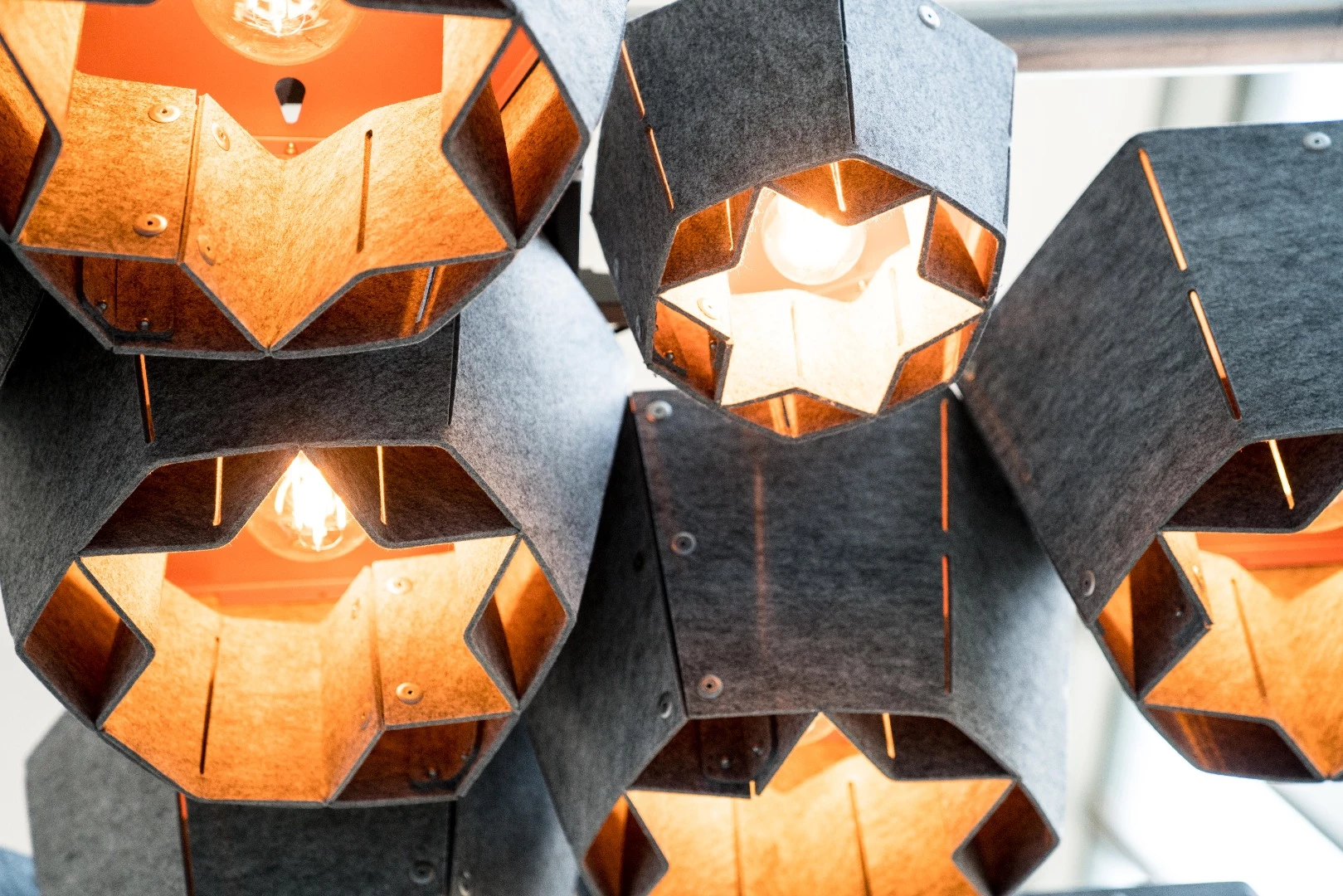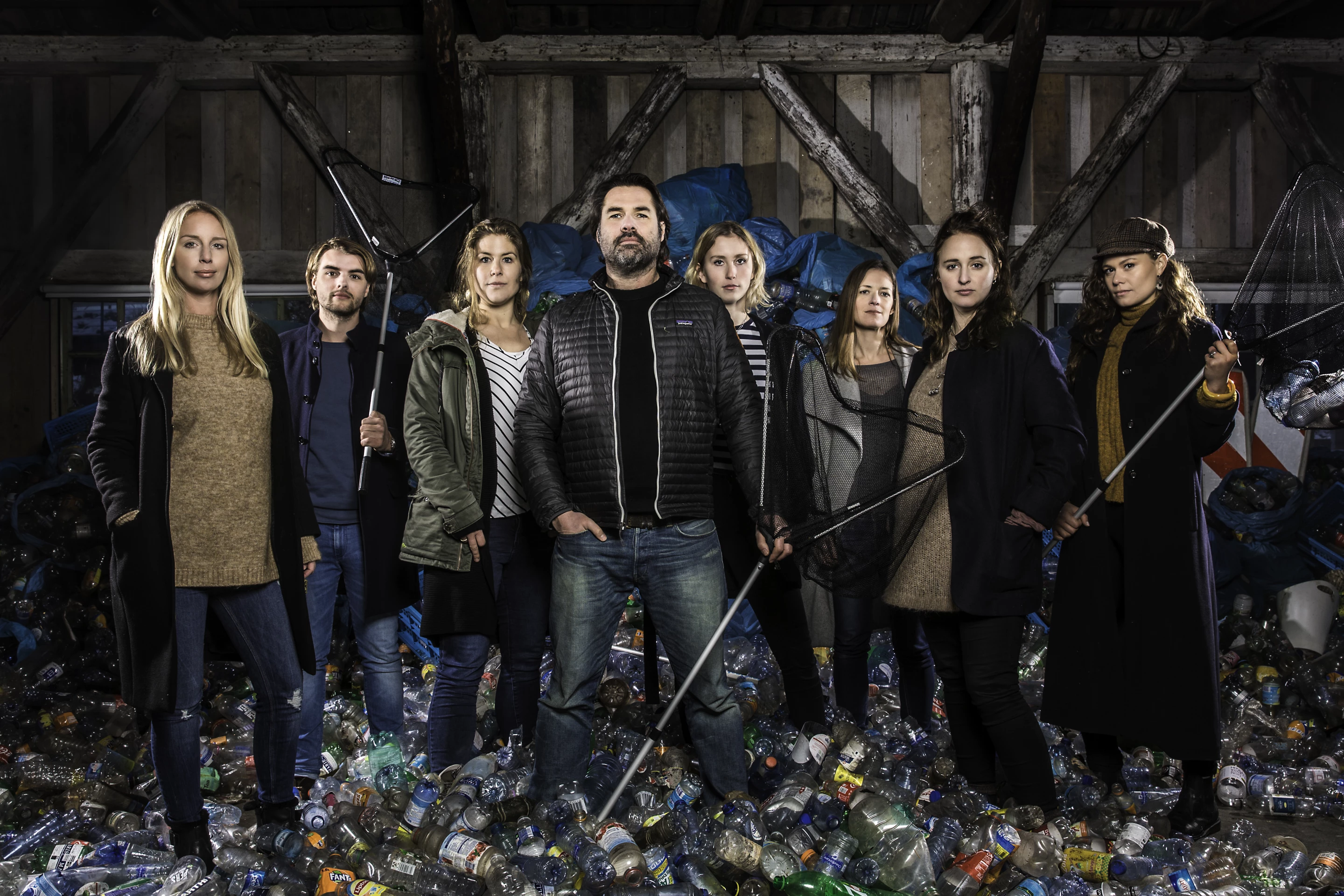Plastic waste is a huge problem, both on land and in the oceans and waterways. A company in Amsterdam, The Netherlands, has been taking to the city's canals for a few years and scooping up plastic trash in nets. That waste is then transformed into boats that carry more "plastic fishermen" onto the canals to collect even more plastic. Now Plastic Whale has found another use for this floating environmental nightmare – office furniture.
Plastic Whale describes itself as the world's first plastic fishing company, and more than 11,000 people have volunteered to help it remove plastic from Amsterdam's canals since the firm began its cleanup operation in 2011. Over 100,000 plastic bottles and more than 2,000 bags of plastic waste have been removed, and 10 boats made from plastic trash now regularly take net-holding crews onto the canals to fish for more plastic waste.
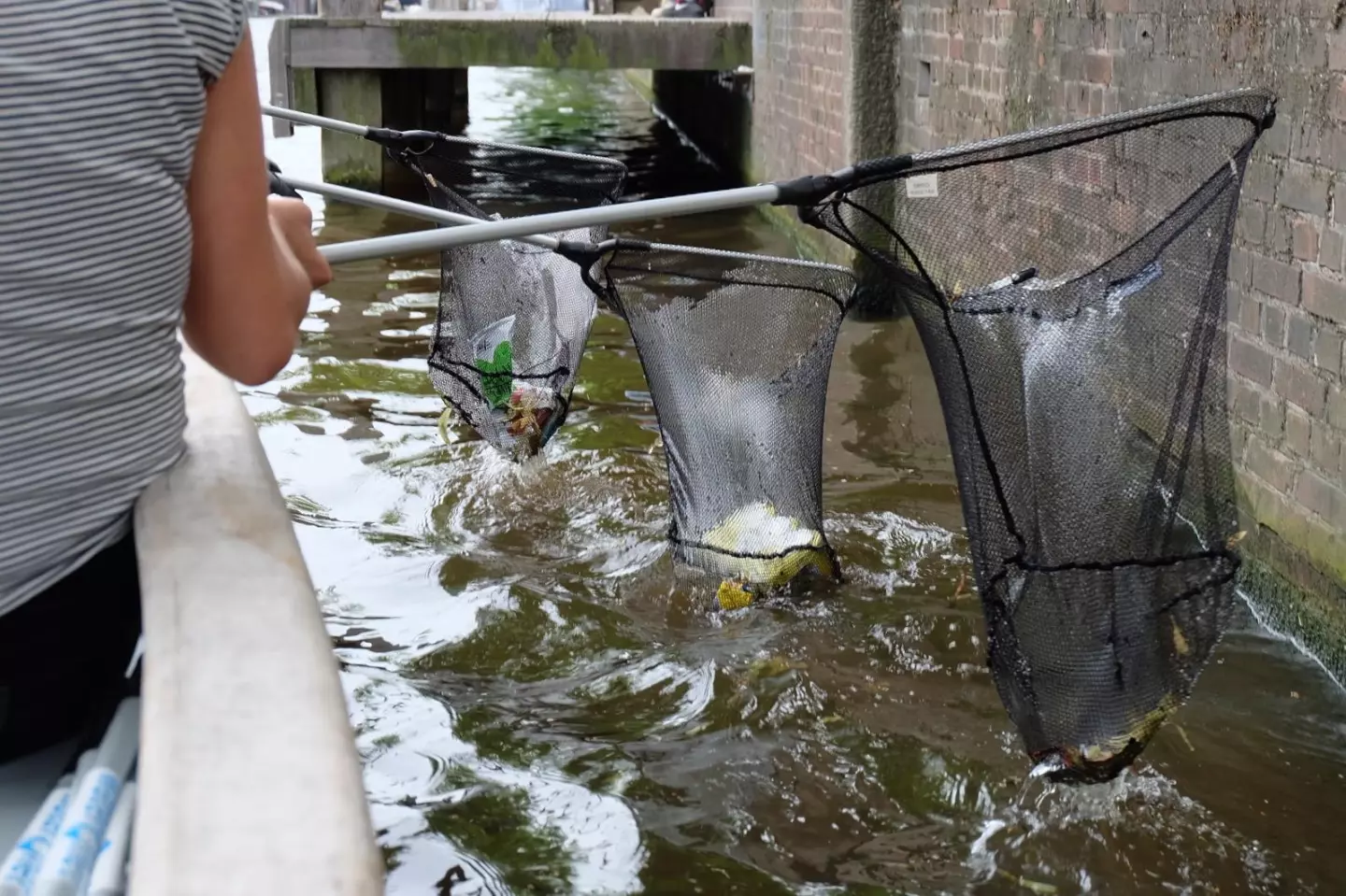
For the recently launched Circular Furniture project, Plastic Whale has partnered with furniture maker Vepa and the Lama design studio to make high-end office furniture – currently comprising a boardroom table, a chair, lamps and acoustic wall panels.
The top of the 4 meter long, 1.4 m wide and 0.75 m high (13 x 4.6 x 2.4 ft) table was inspired by a surfacing whale and features a raised ridge along its center, and is made from a sandwich of recycled PET, FSC-certified birch ply and metal plating. The spine-like legs are made from FSC-certified oak with metal bars inbetween.
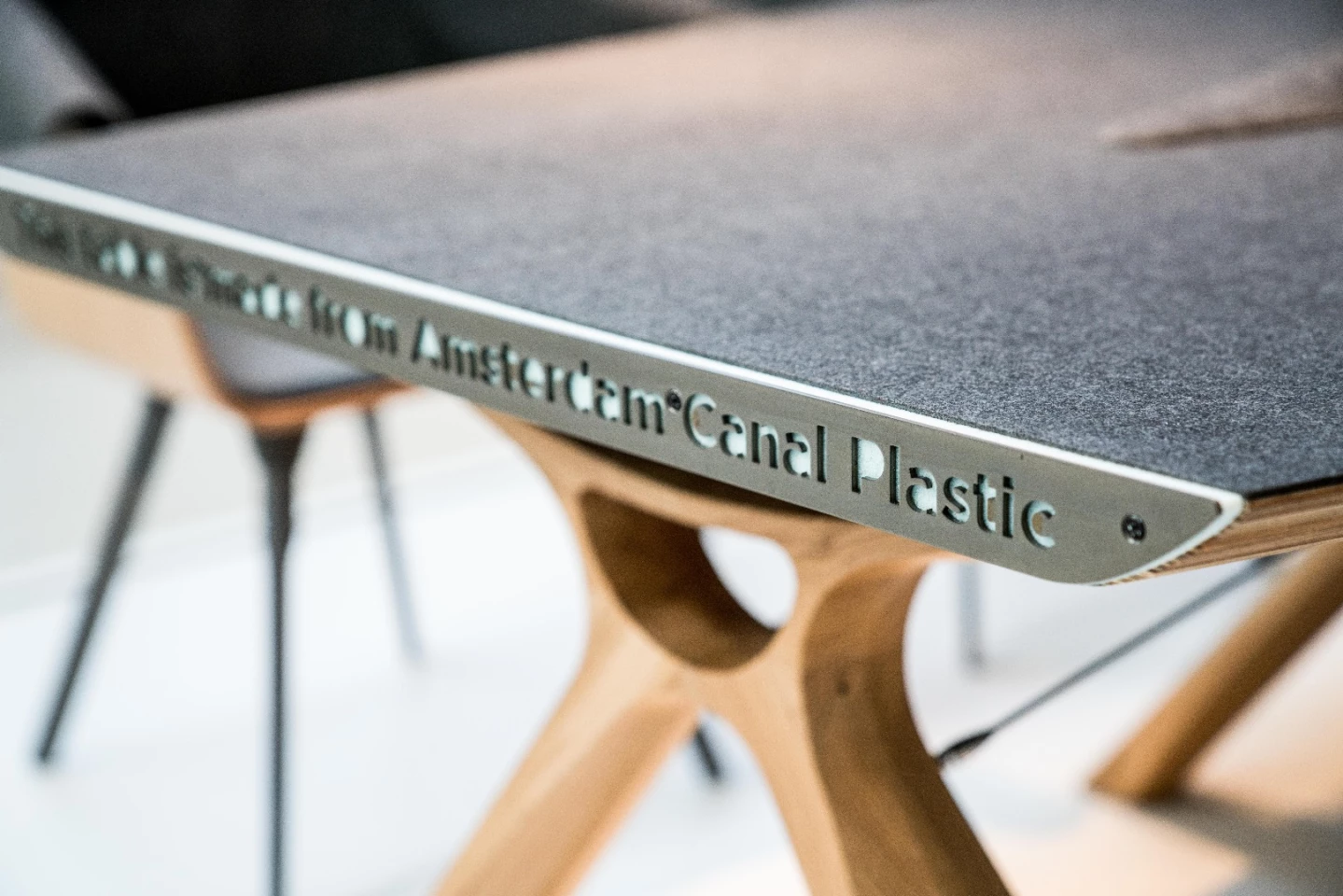
The shape of the office chair is said to resemble the tail of a whale. The bucket seat has a cast iron base made from waste from the Vepa factory, a pressed and recycled PET felt back and a seat shell of ply with oak veneer top layer. The cushion is made using dust waste and wrapped in a cover fashioned from recycled plastic bottles, and FSC-certified beech or oak legs raise it to sitting height.
Barnacles found on the skin of a whale inform the shape of the lamp, which is made from PET felt and makes use of energy-efficient LED filament bulbs. PET felt is also used to make the acoustic panels, which can be had with or without LED backlighting.

All of the office furniture has been designed in such a way that, at the end of its useful life, it can be broken down for reuse or upcycled to make something new.
Amsterdam seems to be something of a hotbed of recent activity for recycling plastic to make furniture, in the case of last year's Print Your City! to 3D print curvy street furniture.
Some of the money raised from the Plastic Whale Circular Furniture project will be used to fund local plastic cleanup initiatives around the world, hopefully helping to turn the tide on a massive global problem. There's more information in the video below.
Source: Plastic Whale
